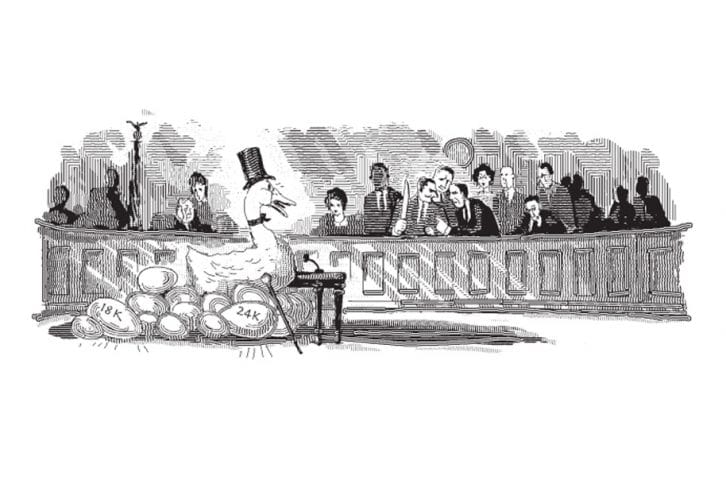Everything depends on health care reform. President Obama has made that clear in his 29 (at last count) speeches on the subject and by his administration's legislative and lobbying priorities. His long-term ambitions to revive the Democrats' reputation for epochal social reform, to restore his party as America's majority party, and to elevate himself as one of its immortals—all turn on a breakthrough on health care.
Success would allow him to fulfill a promise made by Franklin Roosevelt 65 years ago. Failure would make him another Bill Clinton. That's why Obama can be counted on to fight for the last vote in the Senate as he did in the House of Representatives, whose narrow passage of a bill was a big step forward for the president's efforts. Though the whole enterprise could still fall apart in the Senate or in conference committee, it's increasingly likely that something called health care reform eventually will emerge from this heavily Democratic Congress and be signed into law by President Obama.
But contrary to his expectations, that won't be the end of the fight. Or at least it shouldn't be. Without letting up on their resistance to the awful health care bills now before them, Republicans and conservatives of all stripes ought to prepare themselves for a possible second phase of the struggle: repeal, of whatever noxious bill the Democrats manage to pass.
And make no mistake, it will be the Democrats who pass this so-called reform bill. Never before in American history will a major piece of social legislation have been enacted on such a purely partisan basis. The granddaddy of them all, the Social Security Act of 1935, won the support of a majority of Republicans in both the House and Senate. Medicare became law in 1965 with half of House Republicans and 13 of 32 GOP senators voting yea. By contrast, Obamacare (whatever it turns out to be) will pass, if it passes, essentially by Democratic votes alone, even if one or two confused Republicans do wander across the aisle.
This will be partisan legislation of a very bad sort. In fact, it will be legislation of a very bad sort, degrading health care's quality, raising taxes and insurance premiums while adding enormously to the deficit, and deliberately expanding Americans' dependence on the federal government. It will be law that, in poll after poll, most Americans say they do not want. But it will be shoved down our throats anyway, in a vivid example of the bedside manner we can expect from our new national health care system.
Unless we resist, and continue to resist.
What alternative do we have? To acquiesce in the new program in hopes of improving it later on would be a pipedream. If entitlement programs could be easily fixed, the U.S. would not after decades of warnings be facing the impending bankruptcy of Social Security, Medicare, and Medicaid. If government bureaucracies could handily be streamlined, the Post Office would not be…the Post Office.
That leaves refusing to accept the new measure as legitimate, or in other words, beginning to work as soon as it is passed for its repeal. There is nothing un-American or undemocratic or even unrealistic about this. The same legislature that enacts a bill has the right and power to repeal it. It happens all the time. More generally, battles to reverse public policy considered unfair, unwise, and unconstitutional are a storied part of American history, ranging from Thomas Jefferson's denunciations of the Alien and Sedition Acts, to Andrew Jackson's war against the Second Bank of the United States, to the repeal of the 18th Amendment, when a thirsty country changed its mind about banning sales of alcoholic beverages. More recently, the Medicare Catastrophic Coverage Act of 1988 lasted until 1989, when Congress, under pressure from senior citizens, removed it from the books.
In the present case, it's been so hard for Democrats to find a politically palatable way to pay for their reforms that they want to institute their plan's new taxes at once but delay its benefits until 2013. The gimmick would yield several years of revenues without expenditures, contributing to the illusion that their bill will not bust the budget. Happily, three years of pain but no gain would also provide the perfect opportunity to pursue the politics of repeal.


